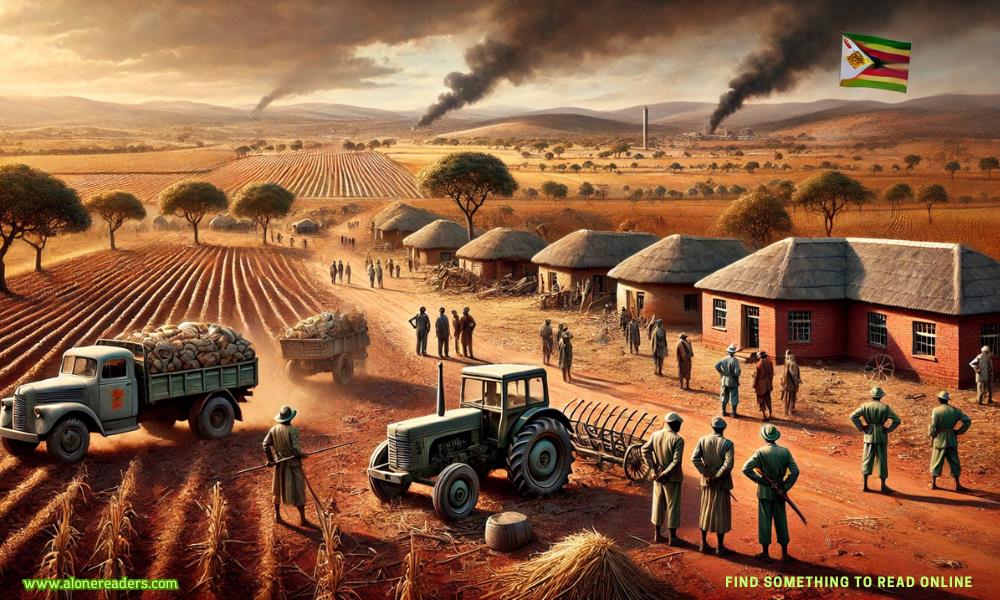
In the early 2000s, Zimbabwe underwent one of the most dramatic and controversial land reform programs in modern history under the leadership of President Robert Mugabe. The program, ostensibly aimed at addressing historical inequities in land ownership, resulted in widespread economic collapse and social unrest. These land reforms were primarily driven by political motivations and deeply rooted in the colonial history of Zimbabwe. While the program promised economic empowerment for the majority black population, its execution led to a chain of devastating consequences that crippled the nation.
The land reform initiative focused on redistributing farmland from white commercial farmers to black Zimbabweans. Under the colonial administration, a vast majority of fertile and productive land was owned by a small white minority, leaving the black majority confined to less arable land. Mugabe's government sought to rectify this imbalance, framing the land reforms as a necessary step toward justice and national sovereignty. However, the process was marked by chaotic implementation, legal irregularities, and a lack of planning. White-owned farms were forcibly seized, often without compensation, and redistributed to individuals who lacked the resources, expertise, or equipment to maintain productivity.
The violence associated with the land seizures shocked the international community. Many white farmers and their workers were subjected to physical assaults, threats, and, in some cases, murder. These events were often orchestrated by militant groups loyal to Mugabe, known as "war veterans," who justified their actions as reclaiming land stolen during colonial rule. This violence extended beyond the farms, impacting rural communities and creating a climate of fear and instability throughout the country.
The economic consequences of the land reforms were catastrophic. Zimbabwe's once-thriving agricultural sector, which was the backbone of the economy and a major source of export revenue, collapsed. The production of key crops, including tobacco and maize, plummeted, leading to widespread food shortages and soaring inflation. By 2008, inflation reached an unprecedented level, with the Zimbabwean dollar rendered virtually worthless. Millions of Zimbabweans faced hunger, unemployment, and poverty, while the country became increasingly reliant on international aid to meet its basic needs.
The political fallout from the land reforms further exacerbated the situation. Mugabe's government became increasingly authoritarian, silencing dissent and suppressing opposition parties. The land reforms served as a tool to consolidate political power, with land being distributed primarily to Mugabe's loyalists rather than to ordinary citizens in need. Corruption and mismanagement became rampant, further undermining the potential benefits of the program.
Internationally, Zimbabwe faced widespread condemnation and isolation. Western nations imposed economic sanctions, citing human rights abuses and the erosion of democratic principles. These sanctions, combined with the economic devastation caused by the land reforms, deepened Zimbabwe's economic crisis. The once-prosperous nation, known as the "breadbasket of Africa," became synonymous with economic mismanagement and political turmoil.
For ordinary Zimbabweans, the land reforms brought little benefit. Many of the new landowners lacked the training or resources to farm effectively, leading to underutilization of the land and reduced agricultural output. This failure to replace the expertise of the displaced commercial farmers further entrenched the economic decline. Moreover, the social fabric of the nation was torn apart by the violence and displacement caused by the reforms, leaving scars that persist to this day.
Despite the devastation, Mugabe defended the land reforms as a necessary step toward achieving economic independence and social justice. He argued that the program was a long-overdue correction of colonial injustices and accused Western nations of sabotaging Zimbabwe's economy through sanctions. However, critics contend that the reforms were primarily a political maneuver to maintain power and deflect attention from the government's failures.
The legacy of Mugabe's land reforms continues to shape Zimbabwe's socio-economic landscape. While some progress has been made in stabilizing the economy and addressing food security issues in recent years, the scars of the early 2000s remain. The reforms not only dismantled the agricultural sector but also eroded public trust in government institutions and the rule of law. The experience serves as a cautionary tale about the dangers of poorly planned and politically motivated policy decisions.
In conclusion, Mugabe's land reforms in Zimbabwe during the 2000s stand as a defining chapter in the country's history. While rooted in legitimate grievances over colonial land ownership, the chaotic and violent implementation of the program led to economic collapse, widespread suffering, and international condemnation. The reforms failed to achieve their intended goals and instead plunged Zimbabwe into a crisis from which it has struggled to recover. The story of Zimbabwe's land reforms is a stark reminder of the complexities of addressing historical injustices and the far-reaching consequences of policy decisions driven by political expediency rather than sound governance.